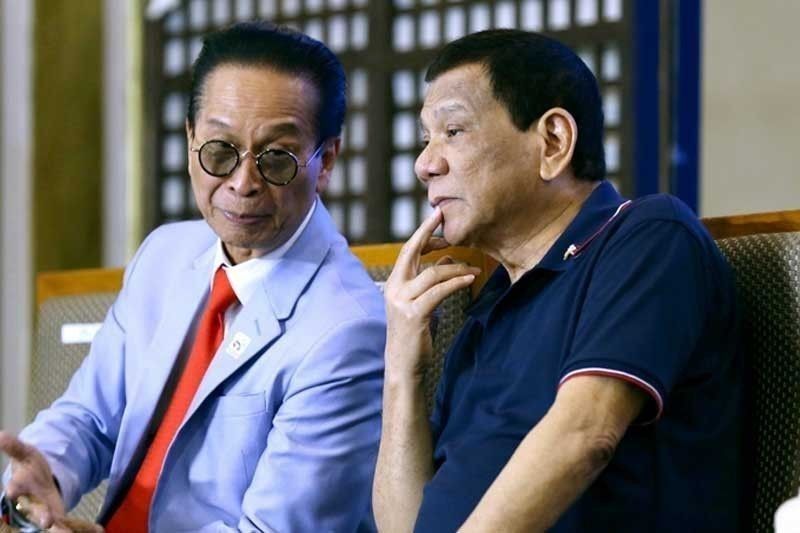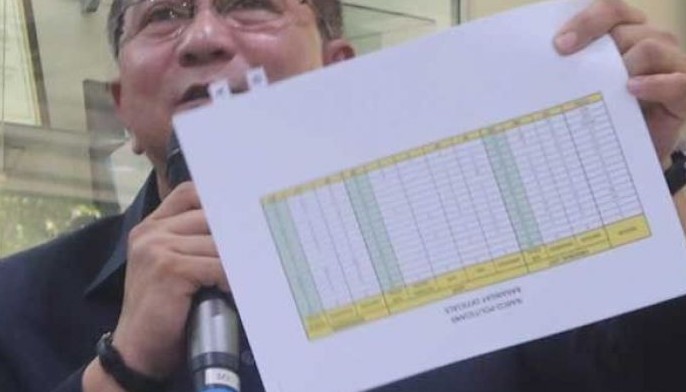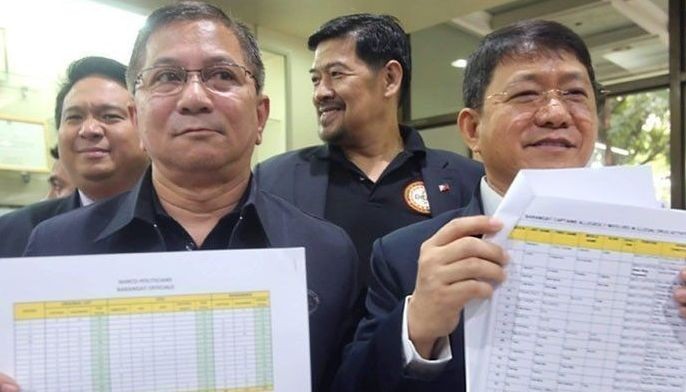Panelo: Narco-list info from surveillance, drug surrenderees

MANILA, Philippines — Presidential spokesperson Salvador Panelo said that the supposed narco-list is not based on “wiretapped conversation” given by foreign countries, days after he raised the possibility that law enforcement agencies, “not necessarily” from the Philippines, bugged communications between drug suspects.
Panelo in a briefing on Thursday said that “definitely” the list of politicians allegedly involved in the illegal drug trade has not been subjected to wiretapping. The allegation of their links with drugs, instead, may have come from surveillance or information given by those who surrendered to authorities.
Panelo’s statement came two days after he was asked if he is not denying that our law enforcement agencies are wiretapping drug suspects, even if the act itself is illegal in our country.
He answered: “Di ba inaamin nila iyon. Kahit nga si presidente sinabi niya, oo alam ko, kaya ko nalaman iyan dahil may nag-provide—not necessarily sila ha, not necessarily law enforcement agencies natin, kasi I don’t think we have the capability. Wala tayo noon eh.”
(Didn’t they already admit that. Even the president said, I know, that’s how I found out about it because someone provided it—not necessarily from our law enforcement agencies because I don’t think we have that capability. We don’t have that.)
He furthered, in the same briefing on Tuesday, that countries like Israel, the United States, Russia and China are “good” with wiretapping.
Panelo: I used the 'wrong word'
But Panelo on Thursday said he was just making an “educated guess” then on the probability that wiretapping might be used by countries "whose survival depends on measures that they will undertake to preserve their territory or sovereignty."
He also admitted that he used the “wrong word” when he said the country is being provided with bugged conversations by foreign countries.
“What I really mean is if any information is thrown to our lap without us asking it, in the course of anything whether it’s coming from whomsoever, we can use that information as lead,” he also said.
He said that all countries cooperate when combating terrorism and the illegal drug industry and the Duterte government would not hesitate in using “information thrown at our lap without us asking anything” if it concerns the national interest.
Wiretapping is illegal in the Philippines except when sanctioned by the court, as provided by the Anti-Wiretapping Law.
Justice Secretary Menardo Guevarra asserted that bugged communications made under the country's jurisdiction “is unlawful under Philippine law.”
“If the wiretapping act involves an element performed in Philippine jurisdiction, such as bugging local phone lines, that may be considered unlawful under Philippine law and its admissibility questionable,” he also said.
Several groups criticized Malacañang's move to publicize the narco-list, but the Palace stands firm on its release possibly next week. — Kristine Joy Patag
- Latest
- Trending































